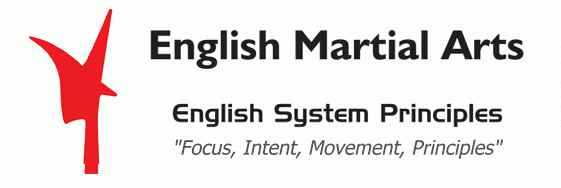
~ Frequently Asked Questions ~
FAQ's
A: Every every Sunday morning between 11:00-12:30
A: Yes, our classes are currently aimed at beginners and those new to EMA, though all skills levels are catered for.
A: Yes we are members of, and fully insured by, the British Combat Association.
A: Currently our classes are restricted to those of 18 years of age and above. There are no upper limits on age as we consider it just a matter of personal preference, fitness and motivation.
We are considering running classes for children in the future but there are no current childrens classes. However, if you wish to practice yourself and involve your children under supervision then please get in contact and we will do what we can to arrange sessions outside of the usual class structure. Children must always be accompanied by a parent or guardian and have the relevant permission.
A: The normal 1.5 hour class is £7.50 to go towards insurance, upkeep of the kit used and halls when available.
A: Most wear loose jeans, trainers, a T-shirt or similar clothes you can move around in easily, and ideally are not worried about tearing or staining, just in case. While we do have T-shirts and club kit available but there is no formal uniform and we encourage students to train in clothes they would normally wear out and about, as we believe you should learn to move and defend yourself effectively in the sort clothes and situations you’re most likely to be in. * Please remember though to wrap up appropriately for outdoor training.
A: There’s no need to bring any kit with you to start with as we always have spares. Those who have attend on a regular basis generally acquire oak cudgels sized appropriately for them, and often a staff. We are happy to get hold of sticks and staves for you from a local martial art supplier at discount if desired.
Many also acquire their own focus mitts, kick pads and miscellaneous kit but nothing is needed to start with but clothes you can move around easily in.
A: No, though there’s always the chance of a skinned knuckle, bruises and other minor hazards of training, but over the years we have had very few injuries and the majority of those have been minor. We do our best to make sure that no-one is subjected to unnecessary risk and all training is at a pace and intensity suited to the individual.
A: No, EMA is about the Principles behind fighting, self-defence and related movement and awareness, so there are no specific kata’s you have to learn to progress. However, in order to learn effective defence and attack when needed we do use techniques and drills to train the foudnation blocks and attacks, help embed the principles, learn effective movement and body mechanics, and train focus and awareness. Training is always more organic than formal and traditional.
A: We can cater to all levels of fitness in your training, though obviously fitness is a key aspect of effective self-defence and fighting so we encourage a good level of fitness training for health, stamina and endurance.
A: The primary weapons we use to embed the core of the art are the Wooden Cudgel for sword and one-handed weapons, the Quarterstaff for two-handed work, and Sword & Dagger for either hand work. These all lead on into the unarmed movements, blocks and attacks which are reinforced throughout all the work without the need to learn seperate forms or kata's.
Other weapons inclde the Broadsword, Dagger, Buckler (small shield), Threshalls, the English Bill (our logo!), together with variations of two-Handed Sword, Short-staff, short-sticks and improvised weapons. Overall, we practice with any form of weaponry, together with more modern types and variations as EMA is all about the Principles behind the fight and applying those to whatever items are to hand for effective self-defence.
A: Quite a bit - over the course of your training there is a fair amount of barefist and unarmed work, however, in order to learn the Principles effectively we start with the sword/cudgel and quarterstaff as this gives students confidence in the art early on and allows time for the core concepts to be observed, practiced and to sink in before we go in-depth without weapons.
That said, we always include a mix of both weapon and unarmed skills and training across lessons to keep things interesting and allow students to work with the Principles in different ways, in addition to the essential unarmed self-defence training and drills.
A: Yes, relating to grips, strikes, attacking from all-angles, generating power in-close, movement of your own and your opponents body, analysing body mechanics and manipulating an opponent. We also include some more common work such as counters, basic throws, escapes, etc.
We don’t dive in with this straight away though unless you have a specific desire to get into this work earlier on, as we find it more useful to have an understanding of the basics and Principles first.
A: There are certainly kicks used as part of the art, but these are more solid practical, simple and situational. In addition we do a degree of training working against kicks. However, as the Principles often compromised with unnecessary, wide-spaced or comparatively slow kicks we do not emphasise this area.
A: English Martial Arts is primarily a full contact fighting and self-defence art – however we always train you at your own pace and at a level of contact that you are comfortable with.